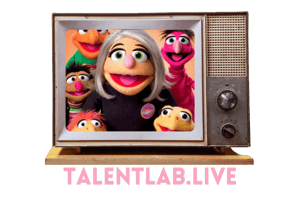Podcast
Questions and Answers
[Blank] is the ethical and moral foundation that shapes our actions and decisions.
[Blank] is the ethical and moral foundation that shapes our actions and decisions.
Character
[Blank] is who you are when no one is looking.
[Blank] is who you are when no one is looking.
Character
[Blank] can be shaped by factors such as values, beliefs, life experiences, upbringing, education, and role models.
[Blank] can be shaped by factors such as values, beliefs, life experiences, upbringing, education, and role models.
Character
[Blank] traits can grow and change over time with effort as they are developed after self-reflection and can undergo growth.
[Blank] traits can grow and change over time with effort as they are developed after self-reflection and can undergo growth.
[Blank] traits remain stable throughout time, but some aspects of your may be developed through personal development.
[Blank] traits remain stable throughout time, but some aspects of your may be developed through personal development.
[Blank] is the consistent patterns of thought and behavior that define our unique traits and tendencies.
[Blank] is the consistent patterns of thought and behavior that define our unique traits and tendencies.
[Blank] can be influenced by several factors such as genetics and upbringing, cultural background, and life experiences.
[Blank] can be influenced by several factors such as genetics and upbringing, cultural background, and life experiences.
[Blank] is more inward-focused and can be expressed through your moral actions and decisions.
[Blank] is more inward-focused and can be expressed through your moral actions and decisions.
[Blank] is the ability to choose your response.
[Blank] is the ability to choose your response.
The process of transformation involves significant and fundamental change, whether in ______, course, or behavior.
The process of transformation involves significant and fundamental change, whether in ______, course, or behavior.
Flashcards
Self-Awareness
Self-Awareness
Understanding one's own emotions, strengths, weaknesses, values, and impact on others.
Personality
Personality
The combination of characteristics or qualities that form an individual's distinctive behavior.
Character
Character
Who you are when no one is looking; represents principles, virtues, and ethics.
Experiential Learning Cycle
Experiential Learning Cycle
Signup and view all the flashcards
Response-ability
Response-ability
Signup and view all the flashcards
Environmental Impacts
Environmental Impacts
Signup and view all the flashcards
Psychic Impacts
Psychic Impacts
Signup and view all the flashcards
Communication Skills
Communication Skills
Signup and view all the flashcards
Transformation
Transformation
Signup and view all the flashcards
Study Notes
Topics Covered
- Self-awareness is the primary focus.
- Leadership styles and potential issues like "life parasites" are addressed.
- Concepts such as DISC, the Holland Code, values, and self-esteem are covered.
- Mindset (growth vs. fixed), emotional intelligence, and time management are included.
- Effective communication strategies are reviewed.
- Critical thinking, SWOT analysis, problem-solving, and decision-making are important.
- Team building, conflict resolution, presentation skills, and elevator pitches are covered.
- Personal branding and networking are touched on.
Experiential Learning Cycle
- Involves starting with tangible experience and moving to reflective observation.
- This process leads to both learning and abstract conceptualization of the experience.
- Sharing, applying, and consistently practicing learned concepts are encouraged.
Journey of Change
- The transformation process involves significant, fundamental change.
- This change can be in perspective, course, or behavior.
- Transformation begins with an initial concept.
- Transformation is a deliberate journey
- Transformation cannot be imposed externally.
Dimensions of Change
- Change occurs across three dimensions.
- Change of mindset.
- Change of direction.
- Shift in action.
Character vs. Personality
- Character reflects who you are when unobserved.
- Character embodies principles, virtues, values, attitudes, beliefs, and ethics.
- Personality is the combination of characteristics or qualities that make up an individual.
Key Questions for Self-Reflection
- What legacy is desirable to leave behind?
- Would ones organization notice their absence?
- Are you a role model?
- What distinguishes you from your generation?
- How do you impact people?
- Are you holding onto something that needs to be let go of?
- Do you accept, and embrace your weaknesses?
Genetic, Environmental and Psychic Impacts
- Genetic impact is the DNA people inherited
- Environmental impacts are the financial circumstances or regulations one may be faced with
- Psychic impact relates to how someone was raised and childhood experiences
Seasons of Life Questions
- Ages 0-3: Am I loved?
- Ages 4-8: Am I the center of attention?
- Ages 9-12: Who am I? (Identity)
- Ages 13-18: What can I do well, and what defines me?
- Ages 19-22: Where am I going?
- Ages 23-30: Where can I fit in, and what do I like to do?
- Ages 31-40: What am I successful at?
- Ages 41-50: How can I multiply success?
- Ages 51-65: What legacy do I want to leave behind me?
- Ages 66-75: How can I be a source of wisdom, and to whom?
Responsibility Definition
- Responsibility = response-ability, or "the ability to choose your response"
- Attributed to Stephen R. Covey.
Key Differences Between Character and Personality
- Character is who you are when no one is looking, not a persona.
- Personality is the combination of qualities that form an individual's behavior.
- The primary factor influencing personality is "All of the above"
- The theory that suggests upbringing significantly shapes our personality is "Psychic impact"
Studying That Suits You
Use AI to generate personalized quizzes and flashcards to suit your learning preferences.




